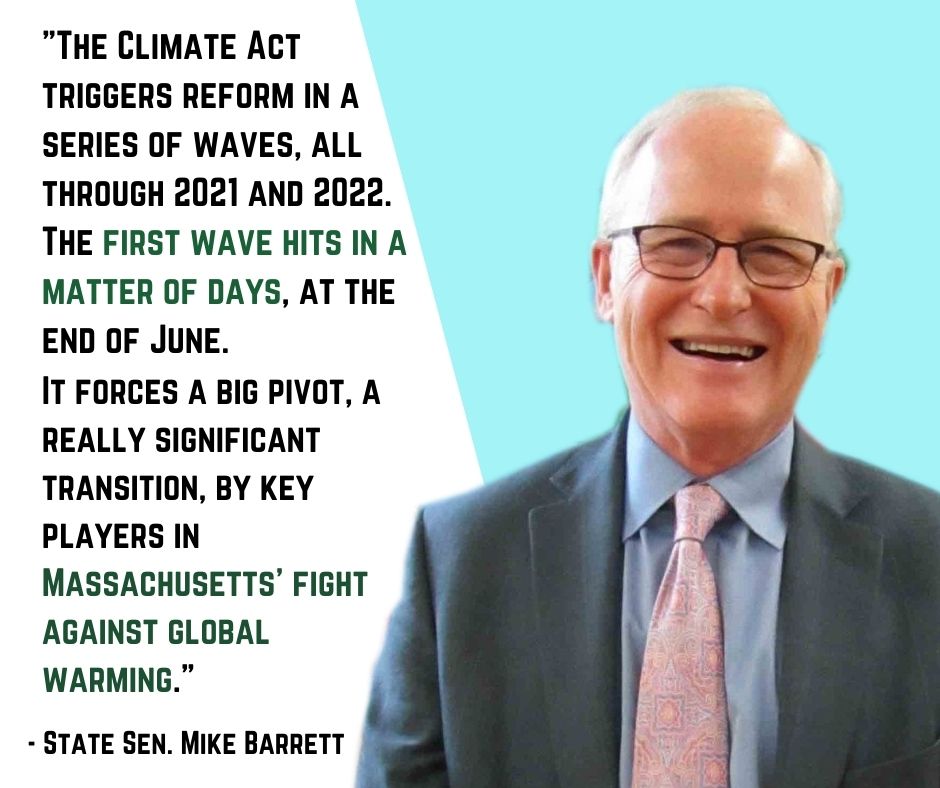Massachusetts’ breakthrough climate law takes legal effect soon, on June 25, 90 days after its signing by Gov. Charlie Baker. It means new roles and new responsibilities, say the State Senate’s two leads on climate policy, and a transformation of the fight against global warming.
Among the changes:
- Beginning on the 25th of this month, the Department of Public Utilities has to align its policymaking with the ambitious new mission given the agency. In the Climate Act, the Legislature directs the DPU to give equal weight to six factors as it decides electric power and natural gas rates, reviews contracts with electric and gas companies, and makes policy. System reliability and affordability, the DPU’s two longstanding priorities, will remain crucial, but as of the 25th they’re on a par with four new criteria — safety, system security (from both cyberattacks and physical sabotage), equity, and, importantly, reductions in greenhouse gas emissions.
- On or after the 25th, Gov. Baker has to appoint three new members of the Board of Building Regulations and Standards, an agency criticized for its reluctance to make emissions-related improvements to state building codes. One new member is to be an “expert in commercial building energy efficiency;” one, an “expert in residential building energy efficiency;” and one, an “expert in advanced building technology.” The Governor’s Commissioner of Energy Resources becomes a fourth new member.
- Beginning on the 25th, all the parties involved in running Mass Save, the state’s high-profile energy efficiency initiative, must factor a new element, the “social value of greenhouse gas emission reductions,” into the design, evaluation, and approval of the program and its features. The mandate applies to the activities already underway with respect to formulating Mass Save plans and programs for the three-year period 2022-2024. Agencies affected are the DPU, the Department of Energy Resources (DOER), the Energy Efficiency Advisory Council (EEAC), and, of course, the electric and natural gas companies regulated under state law as public utilities.
- On or before July 15, 2021, the Secretary of Energy and Environmental Affairs has to set a goal for the contribution Mass Save’s 2022-2024 program will make to the state’s drive to meet its 2025 emissions limit and sublimits. This exercise in goalsetting is distinct from the actions the various participants must take to factor the “social value of greenhouse gas emissions reductions” into the design, evaluation, and operation of Mass Save plans and programs.
